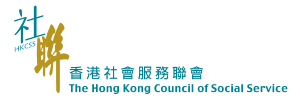SE Directory 2022/23 – SE Figure
Social Enterprise Business Centre (SEBC) compiles the Social Enterprise Directory (SE Directory) every year. As of April of 2022, there were 711 social enterprise (SE) units, reflecting a 7.9% increase from the previous year. These SE units were run by 368 organisations. 147 (39.9%) of them are charitable organisation (i.e. exempt from tax under section 88 of the Inland Revenue Ordinance), while 221 (60.1%) are not. Regarding SE industrial distribution of SE units*, the first three categories that account for the most in total are Education and Training (a total of 185 SE/ SE projects), Health Care and Fitness (a total of 177 SE/ SE projects) and Lifestyle (a total of 168 SE/ SE projects). Besides, there were 77 newly listed SE units. Their common operational obstacles* are ‘High rental cost’ (selected by 41 SE/SE projects), ‘High production cost’ and ‘Low public awareness’ (selected by 39 SE/SE projects respectively). They believe ‘Enhance public education’ (selected by 41 SE/SE projects), ‘Organisations and corporations adopt responsible procurement policy’ (selected by 38 SE/SE projects) and ‘Increase financing channels’ (selected by 36 SE/SE projects) are the most helpful measures* that can assist SEs. If you would like to know more about SE Directory 2022/23 - ...
List of Ethnic Minorities Service Providers
The Council's Network on Ethnic Minorities Services has more than 30 member agencies providing various service for ethnic minorities, including Chinese and English language classes, cultural sensitivity training, integration program, interpretation and translation, employment support, counseling service and etc. They are concern on rights and equal opportunities of ethnic minorities. Please refer to the attachment regard their service target groups, type of services provided, districts and contacts. Download attachment. Besides, there are six support service centres and two sub-centres for ethnic minorities to facilitate the integration of ethnic minorities into the community, and their access to public services. Regard the Support Service Centres for Ethnic Minorities, please press here. *resources from Home Affairs Department The Social Welfare Department commissioned three non-governmental organisations to set up three outreaching teams for ethnic minorities (OTEM) on mainly Hong Kong Island, in Kowloon and the New Territories to proactively reach out to ethnic minorities and connect those in need with mainstream welfare services. Regard the Outreaching Teams for Ethnic Minorities, please press here. *resources from Social Welfare Department ...
「落得樓」樓梯機服務完滿結束
由香港社會服務聯會(「社聯」)聯同香港明愛、香港基督教服務處、基督教香港信義會社會服務部,及聖雅各福群會,共同推行為期二年半的「落得樓」樓梯機服務試驗計劃(「試驗計劃」)已於2020年10月31日完滿結束。 試驗計劃承蒙凱瑟克基金和利希慎基金贊助,由2018年4月起,致力為居住於沒有電梯的舊式樓宇之長者及行動不便的人士,提供樓梯機接載服務以協助服務使用者上落樓梯,前往就醫、接受復康服務、購買日常用品、參與社交活動,外出飲茶、拜山、參加婚宴等。 截至2020年6月,試驗計劃已提供超過15,400服務次數,服務人數達950之多;根據「落得樓」的社會成效評估報告顯示,試驗計劃成功協助行動不便的人士跨越環境障礙、改善長者及照顧者的生活質素,及促進居家安老等。就以上服務使用率和評估報告反映所得,樓梯機服務已在社區的不同層面帶來正面影響。 社聯在此僅代表四間協辦機構及員工,衷心感謝公眾一直以來對試驗計劃的支持,讓樓梯機服務獲得社區廣泛接納,並得到社會各界的充分肯定。社聯往後將與業界持續探究,如何為有困難上落樓的長者及行動不便的人士,提供服務及支援。 在10月31日後,有需要的人士請聯絡居住地區的長者服務或復康服務單位,以尋求適當的協助或轉介。各單位的聯絡資料及地址可透過社會福利署的網址查詢。 ...
Personal Data (Privacy) Ordinance
Agency members have reflected to the Council that recently, they have received letters from the Office of Privacy Commissioner for Personal Data (PCPD) enquiring about their personal data collection practices (especially on identity card numbers and date of birth), in order to decide whether a formal investigation on the organization’s compliance with the Personal Data (Privacy) Ordinance (the Ordinance) is needed. In fact, social service agencies unavoidably handle large volume of personal data in everyday operations and should beware beware of the legal requirement. To facilitate the compliance of the Ordinance, the Council and PwC Hong Kong developed the Personal Data Privacy Toolkit for NGOs in June and uploaded to the Project website. The toolkit highlights the six Data Protection Principles of the Ordinance and provides practical guidance on handling personal data. “Principle 1: Purpose and Manner of Collection” in particular specifies that NGOs as data users, must consider why personal data needs to be collected and processed. Only data necessary for the specific purpose should be collected. Agency members can view and download the toolkit via the link above. PCPD has also published the “Code of Practice on the Identity Card Number and other Personal Identifiers –– Compliance Guide for Data Users”, ...
The Companies (Fees) (Amendment) Regulation 2020 effective in October
As one of the government’s relief measures to support enterprises and safeguard jobs, the registration fees for all annual returns (except for annual returns delivered late) charged by the Companies Registry would be waived for two years from 1 October 2020 to 30 September 2022. In addition, with effect from 1 October 2020, the fees (excluding Business Registration Fee and Levy) payable for applications for incorporation of companies delivered in electronic form through the e-Registry will be reduced by 10%. The reduction does not apply to applications delivered to the Registry in hard copy form. The Companies (Fees) (Amendment) Regulation 2020 (Cap. 622K) will commence operation from 1 October 2020 to effect the aforesaid waiver and fee reduction. Please refer to the circular of the Companies Registry for details ...
